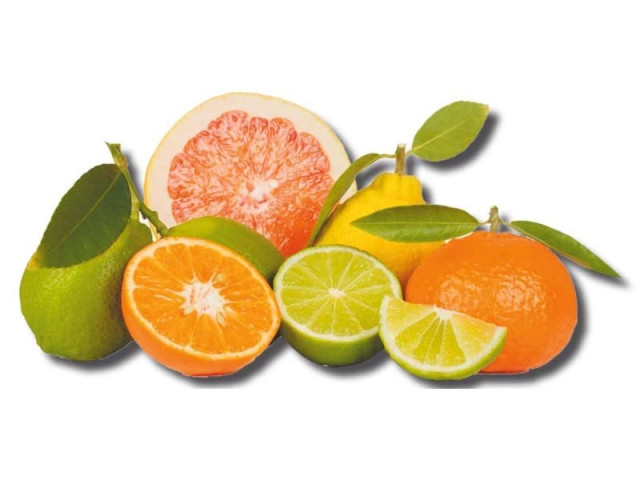Citrus fruits: a great source of vitamins and forex
The most disturbing aspect is that no efforts have been made to introduce new varieties of citrus fruits

The citrus makes a significant contribution to improving human diet in terms of micronutrients intake. Citrus fruits are a good source of various vitamins especially vitamin C. The most disturbing aspects is that no efforts have been made by agricultural experts and researchers to introduce new varieties of the citrus fruits suitable to Pakistani soil, weather conditions, availability of water and current alarmingly increase in global warning issues.
The citrus fruit ranks at the top in production and trade among all fruits produced the world over. It is highly prized and remunerative fruit, cultivated almost all over the world. Citrus comprises about 40% of all fruits that are being grown in Pakistan.
In Pakistan, 95% area of citrus cultivation is in Punjab because of favourable temperature and environmental conditions. It is cultivated on around 189,784 hectares with estimated production of 205,950 tonnes in Punjab and mainly in the districts of Sargodha, Jhang, Sahiwal, Lahore, Multan, Gujranwala, Sialkot and Mianwali.
Around 70% of citrus production in the county is from kinnow. In fact, kinnow has monopolised the citrus farming in the country, while there is also a great potential in enhancing the cultivation and production of oranges, lemons, grapefruit and pomelo.
Talking to The Express Tribune, University of Agriculture Faisalabad Vice Chancellor Dr Iqrar Ahmad Khan, who is also a citrus expert, said kinnow was a hybrid of two citrus cultivars ‘king’ and ‘willow leaf’ and is classified as kinnow mandarin.
“It was introduced to Pakistan first time from California to the Punjab Agricultural College and Research Institute, Lyallpur (now University of Agriculture, Faisalabad) in the subcontinent in 1943. This ‘easy-peal’ citrus has assumed special economic importance and export demand being acknowledged for its high juice content, special flavour, delicious taste and as a rich source of vitamin C,” he said.
“It is very unfortunate that for the last three decades we could not make out any headway to introduce new citrus varieties, including kinnow,” he remarked.
“In 1992, UAF published a comprehensive book on the issues and prospects of the citrus fruits and thereafter no efforts were made for improvement of the citrus,” Dr Iqrar said.
A spokesman for the agricultural department told The Express Tribune that citrus fruit growers should take measures to protect plants from extreme hot weather as it affects citrus fruit by shrinking its pores which results in its poor growth thus decreasing the overall production.
Last year, the citrus fruit farming in Punjab was badly affected due to scorching heat and pest attacks and a large portion of the crop was damaged. The situation has also affected the exports and revenue generation. According to an estimate, Pakistan earns $175 million from the exports of kinnow alone and the same could be enhanced to $320 million if better varieties of the fruit are developed.
Although the agricultural department functionaries claim that they are making best of their efforts to boost citrus fruits yield and save the citrus growers from losses in the wake of looming global warming challenges but fact remains the potential of the citrus fruits has not been explored in a real sense.
Published in The Express Tribune, June 14th, 2017.



















COMMENTS
Comments are moderated and generally will be posted if they are on-topic and not abusive.
For more information, please see our Comments FAQ